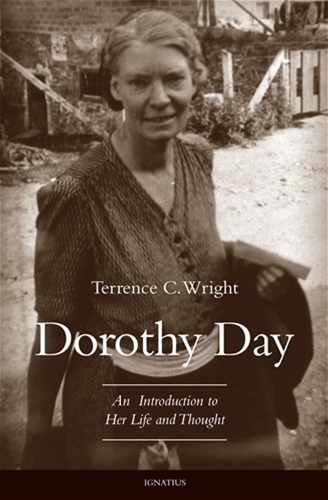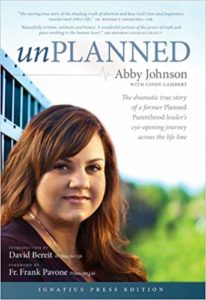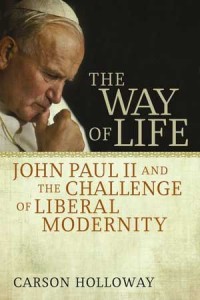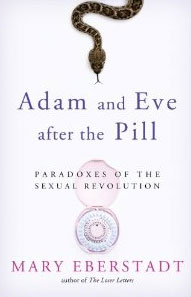Fiorella Nash – The Abolition of Woman on Inside the Pages with Kris McGregor Podcast
Podcast: Play in new window | Download (Duration: 39:53 — 27.5MB) | Embed
Subscribe: Apple Podcasts | Spotify | Amazon Music | Android | Pandora | iHeartRadio | JioSaavn | Podchaser | Gaana | Podcast Index | Email | TuneIn | Deezer | Anghami | RSS | More

“The Abolition of Woman: How Radical Feminism is Betraying Women” is a powerful book and so needed today. Author and international pro-life advocate Fiorella Nash is an incredible advocate for authentic feminism. With this work, she shines a bright penetrating light on the destructive twistings and distortions projected onto women throughout the world by extraordinarily dark forces that many cannot or do not want to see.
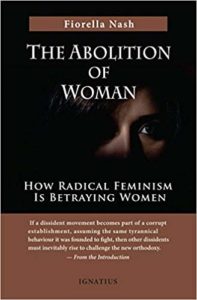 You can find the book here
You can find the book here
From the book description:
This book unashamedly calls mainstream feminists, journalists and Western politicians to account for their silence and – in some cases – vocal justification of the persecution of women because of an absolutist loyalty to abortion. It asks uncomfortable questions to those who claim to believe in women’s empowerment: Where is their passionate outrage when Chinese women are forcibly aborted and sterilised? Where is their concern for the thousands of baby girls killed by abortion every year because their lives are held as worthless simply for being female? What about the thousands of women used as surrogates for wealthy Western couples, treated as chattels and denied their most basic human rights?
But the book also tackles difficult issues for the pro-life side—the need for a sensitive, realistic approach to problematic pregnancies and the importance of confronting the continued exploitation and abuse of women within a sexualised society.
Pro-life feminism is not only possible; it is vital if the complex struggles facing women are to be adequately met. The Abolition of Woman is a rallying cry to feminists to stand with the pro-life movement, fighting to build a society in which women are equal and every human life is protected.
IP#362 Scott Weeman – The Twelve Steps and the Sacraments on Inside the Pages with Kris McGregor Podcast
Podcast: Play in new window | Download (Duration: 30:57 — 21.3MB) | Embed
Subscribe: Apple Podcasts | Spotify | Amazon Music | Android | Pandora | iHeartRadio | JioSaavn | Podchaser | Gaana | Podcast Index | Email | TuneIn | Deezer | Anghami | RSS | More
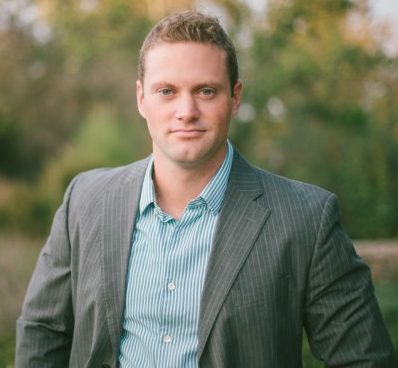 The wisdom that comes from experience is a gift that is meant to be shared, especially in times of challenge and heightened anxiety. In “The Twelve Steps and the Sacraments: A Catholic Journey of Recovery,” Scott Weeman shares his recovery journey and offers a hand up to many today who find themselves in a time of darkness and struggle, especially during the circumstances arising from the Covid-19 global pandemic.
The wisdom that comes from experience is a gift that is meant to be shared, especially in times of challenge and heightened anxiety. In “The Twelve Steps and the Sacraments: A Catholic Journey of Recovery,” Scott Weeman shares his recovery journey and offers a hand up to many today who find themselves in a time of darkness and struggle, especially during the circumstances arising from the Covid-19 global pandemic.Catholic in Recovery is a nonprofit organization founded by Scott Weeman that seeks to serve those suffering from addictions and unhealthy attachments (including alcoholism, drug addiction, pornography addiction, sex and relationship addiction, compulsive overeating and food addictions, gambling addiction, codependency and the impact on family, and general fear, control, and anxiety). To learn visit: www.catholicinrecovery.com
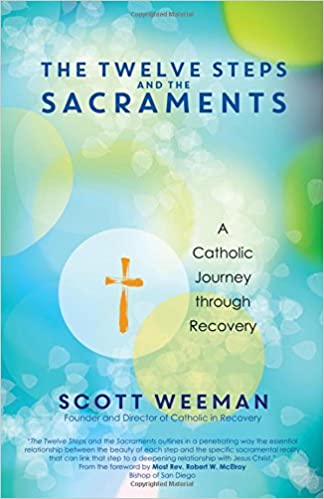 You can find the book here
You can find the book here
From the book description:
In The Twelve Steps and the Sacraments, Weeman candidly tackles the struggle he and other addicts have with getting to know intimately the unnamed Higher Power of recovery. He shares stories of his compulsion to find a personal relationship with God and how his tentative steps back to the Catholic Church opened new doors of healing and brought him surprising joy as he came to know Christ in the sacraments.
Catholics in recovery and those moving toward it, as well as the people who love them will recognize Weeman’s story and his spiritual struggle to personally encounter God. He tells us how:
Baptism helps you admit powerlessness over an unmanageable problem, face your desperate need for God, and choose to believe in and submit to God’s mercy.
Reconciliation affirms and strengthens the hard work of examining your life, admitting wrongs, and making amends.
The Eucharist provides ongoing sustenance and draws you to the healing power of Christ.
The graces of Confirmation strengthen each person to keep moving forward and to share the good news of recovery and new life in Christ.
Weeman’s words are boldly challenging and brimming with compassion and through them you will discover inspiration, hope, sage advice, and refreshingly practical help.
IP#330 Terrence Wright – “Dorothy Day” on Inside the Pages with Kris McGregor Podcast
Podcast: Play in new window | Download (Duration: 28:53 — 19.8MB) | Embed
Subscribe: Apple Podcasts | Spotify | Amazon Music | Android | Pandora | iHeartRadio | JioSaavn | Podchaser | Gaana | Podcast Index | Email | TuneIn | Deezer | Anghami | RSS | More
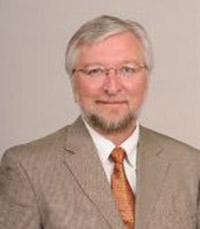 I really love this book! This is a must-have entry point for anyone wanting to learn more about an incredible 20th-century American woman who’s life continues to speak to us today! In “Dorothy Day: An Introduction to Her Life and Thought” by Terrence Wright we are shown what conversion looks like and what fruit can be nurtured by a life steeped in mercy, prayer, and care for those in need. Servant of God Dorothy Day, please pray for us!
I really love this book! This is a must-have entry point for anyone wanting to learn more about an incredible 20th-century American woman who’s life continues to speak to us today! In “Dorothy Day: An Introduction to Her Life and Thought” by Terrence Wright we are shown what conversion looks like and what fruit can be nurtured by a life steeped in mercy, prayer, and care for those in need. Servant of God Dorothy Day, please pray for us!
You can find the book here
From the book description:
In this introduction to the life and thought of Dorothy Day, one of the most important lay Catholics of the twentieth century, Terrence Wright presents her radical response to God’s mercy. After a period of darkness and sin, which included an abortion and a suicide attempt, Day had a profound awakening to God’s unlimited love and mercy through the birth of her daughter.
After her conversion, Day answered the calling to bring God’s mercy to others. With Peter Maurin, she founded the Catholic Worker Movement in 1933. Dedicated to both the spiritual and the corporal works of mercy, they established Houses of Hospitality, Catholic Worker Farms, and the Catholic Worker newspaper.
Drawing heavily from Day’s own writings, this book reveals her love for Scripture, the sacraments, and the magisterial teaching of the Church. The author explores her philosophy and spirituality, including her devotion to Saints Francis, Benedict, and Thérèse. He also shows how her understanding of the Mystical Body of Christ led to some of her more controversial positions such as pacifism.
Since her death in 1980, Day continues to serve as a model of Christian love and commitment. She recognized Christ in the less fortunate and understood that to be a servant of these least among us is to be a servant of God.
IP#78 Abby Johnson – unPlanned on Inside the Pages with Kris McGregor
Podcast: Play in new window | Download (Duration: 30:41 — 21.1MB) | Embed
Subscribe: Apple Podcasts | Spotify | Amazon Music | Android | Pandora | iHeartRadio | JioSaavn | Podchaser | Gaana | Podcast Index | Email | TuneIn | Deezer | Anghami | RSS | More

An ordinary woman who has experienced extraordinary grace and wow, look what God has done! Abby Johnson, author of “unPlanned: the dramatic true story of a former Planned Parenthood leader’s eye-opening journey across the life line”, is a courageous woman who has brought forward not just the Planned Parenthood story (at times nightmarish in their behavior), but more importantly, her story…the journey of conversion, forgiveness, and witness. Abby didn’t go looking for the spotlight, but she didn’t say “no” when it fell on her either. Now she is standing up for life and exposing the reality of Planned Parenthood and the beautiful options for life that are truly available. She can truly say, with all integrity, that she knows both sides of the battle, and she is choosing life! Be sure to get the “Catholic Edition” by Ignatius Press. Visit Abby’s website here.
From the book description:
“What I have told people for years,
what I’ve believed and taught and defended, is a lie.
What if I’d known the truth,
and what if I’d told all those women?”Abby Johnson quit her job in October 2009. That simple act became a national news story. Abby was director of a Planned Parenthood clinic in Texas, but not long after assisting in an actual abortion procedure for the first time, she crossed the line to join the Coalition for Life. What happened in that clinic to cause this Planned Parenthood leader and Employee of the Year to take such drastic action? And how did Planned Parenthood react to her abrupt departure?
Abby reveals her full story in Unplanned: a heart-stopping personal drama of life-and-death encounters, a courtroom battle, and spiritual transformation. Now in an updated edition, Abby’s unique vantage point from both sides of the abortion clinic property line shines light and compassion into the personal and political controversy that surrounds this issue. For anyone who cares about the life-versus-rights debate and helping women who face crisis pregnancies, Unplanned is a must-read.
IP#259 Sheila Liaugminas – Non-Negotiable on Inside the Pages with Kris McGregor
Podcast: Play in new window | Download (Duration: 26:28 — 24.2MB) | Embed
Subscribe: Apple Podcasts | Spotify | Amazon Music | Android | Pandora | iHeartRadio | JioSaavn | Podchaser | Gaana | Podcast Index | Email | TuneIn | Deezer | Anghami | RSS | More
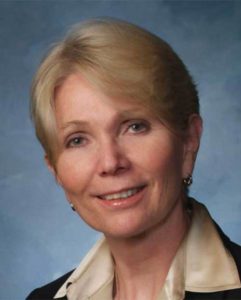
“Non-Negotiable: Essential Principles of a Just Society and Humane Culture” by Sheila Liaugminas is a fantastic book which clearly articulates the essence of Catholic Social Doctrine, especially those teachings which touch the lives of Catholic Americans. She addresses important challenges many face in the arena of politics and cultural relativism and offers solid guidance in the struggle to restore respect for human dignity. Excellent!
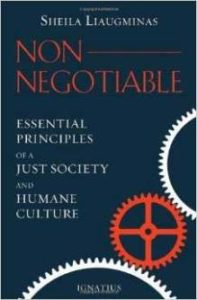 You can find the book here
You can find the book here
“I truly admire Sheila Liaugminas. She is an outstanding journalist. We have dialogued extensively on her radio program about the rights of conscience and the protection of what we call our ‘first principles.’ Sheila has laid out in great breadth and depth the need for a revived understanding of the essentials of human dignity and societal organization.”
– Jeff Fortenberry, Member of Congress
“Both Pope Benedict XVI and Pope Francis have spoken of the ‘dictatorship of relativism’ in our world today and its negative impacts not just on our faith, but to the common good of society. Shelia Liaugminas draws upon the universal principle of natural human rights and dignity to address several contemporary moral issues which have suffered as a result of a relativistic mindset. Her book is a valuable resource in the struggle to restore a true, just and virtuous society.”
– Most Reverend Thomas Paprocki, Bishop of Springfield, Illinois
IP#292 Michael Novak – Social Justice Isn’t What You Think It Is on Inside the Pages with Kris McGregor pt 1
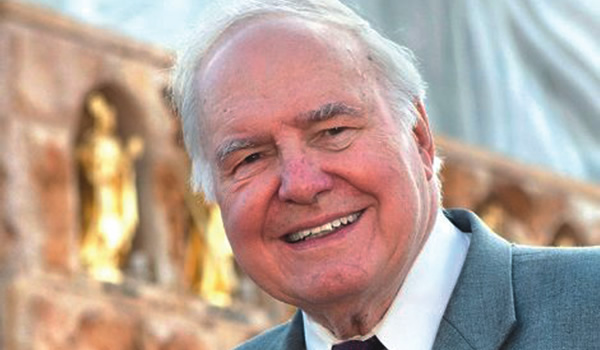 What a delight to talk once again to Michael Novak especially about “Social Justice Isn’t What You Think.” Co-authored with Paul Adams, this book is fantastic! Clearly written, it offers all who read its pages a depth to the subject matter few other works have been able to provide. They rescue the term “social justice” from those who would misuse the term to foster various agendas. As Fr. James Schall critiques so well, “No concept in ethical and political philosophy is more in need of clarification and critical analysis than that of “social justice.” This term is a relatively late arrival in Catholic vocabulary. Adams and Novak provide a careful, thorough analysis of the term and the ideas and approach that make it useful. This is a very welcome book, not to be missed by anyone at all concerned with public order and understanding.” Not to missed!
What a delight to talk once again to Michael Novak especially about “Social Justice Isn’t What You Think.” Co-authored with Paul Adams, this book is fantastic! Clearly written, it offers all who read its pages a depth to the subject matter few other works have been able to provide. They rescue the term “social justice” from those who would misuse the term to foster various agendas. As Fr. James Schall critiques so well, “No concept in ethical and political philosophy is more in need of clarification and critical analysis than that of “social justice.” This term is a relatively late arrival in Catholic vocabulary. Adams and Novak provide a careful, thorough analysis of the term and the ideas and approach that make it useful. This is a very welcome book, not to be missed by anyone at all concerned with public order and understanding.” Not to missed!
Here is part 1 of our conversation.
Podcast: Play in new window | Download (Duration: 27:54 — 25.5MB) | Embed
Subscribe: Apple Podcasts | Spotify | Amazon Music | Android | Pandora | iHeartRadio | JioSaavn | Podchaser | Gaana | Podcast Index | Email | TuneIn | Deezer | Anghami | RSS | More
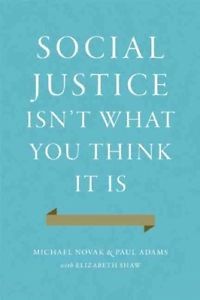 You can find the book here
You can find the book here
Adams and Novak write with compelling clarity and force. They make a rich contribution to our understanding of social justice and the policy implications that flow from it. – Charles J. Chaput, O.F.M. Cap., Archbishop of Philadelphia
Elegantly, winsomely, and with telling examples, Adams and Novak show how Catholic Social Thought challenges conventional “liberal” and “conservative” approaches to social issues. This is a terrific book for anyone who is prepared to look anew at the dilemmas facing a society that aspires to be both free and compassionate. – Mary Ann Glendon, Professor of Law, Harvard University
WOL6 – Democracy, Tocqueville, and St. John Paul II – Reflections on the teachings of St. John Paul II w/ Dr. Carson Holloway – Discerning Hearts
WOL6 – Episode 6- 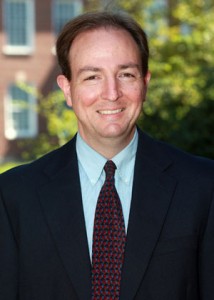 “Democracy in America” by Alexis de Tocqueville is the focus of this episode. What is “democracy” and why did it work it in the American experience. There is much that is good and sound in the founding of “modern western democracy”, but what has happened in the view of “Evangelium Vitae” that has possible knocked it off track.
“Democracy in America” by Alexis de Tocqueville is the focus of this episode. What is “democracy” and why did it work it in the American experience. There is much that is good and sound in the founding of “modern western democracy”, but what has happened in the view of “Evangelium Vitae” that has possible knocked it off track.
Podcast: Play in new window | Download (Duration: 27:30 — 25.2MB) | Embed
Subscribe: Apple Podcasts | Spotify | Amazon Music | Android | Pandora | iHeartRadio | JioSaavn | Podchaser | Gaana | Podcast Index | Email | TuneIn | Deezer | Anghami | RSS | More
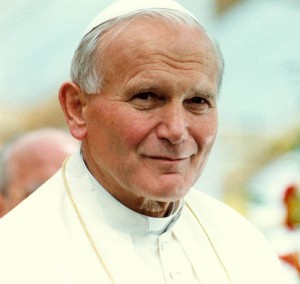
The Way of Life, Carson Holloway examines the fundamental philosophers of modernity-from Hobbes to Toqueville-to suggest that St. John Paul II’s critique of modernity is intended not to reject, but to improve. Thus, claims Holloway, it is appropriate for liberal modernity to attend to the Pope’s thought, receiving it not as the attack of an enemy but as the criticism of a candid friend.
For other episodes in the series visit Dr. Holloway’s Discerning Hearts page
This series is based on Dr. Holloway’s book “The Way of Life”
WOL4 – David Hume, The Scottish Enlightenment and the Culture of Death – Reflections on the teachings of Pope John Paul II w/ Dr. Carson Holloway – Discerning Hearts
WOL4 – Episode 4 –  The Scottish Enlightenment…what was it and why was it such an important movement to understand. The influence of David Hume – Scottish philosopher, historian, economist, and essayist. The flaw in Hume’s philosophy – that self-interest is stronger than sympathy, and if morality, according to Hume’s thinking, is derived from the passions, then ultimately self-interest is a greater worth and motivator than sympathy. This conflicts with the Christian understanding of the “Golden Rule” and fuels the Culture of Death…those in need become very vulnerable in the culture.
The Scottish Enlightenment…what was it and why was it such an important movement to understand. The influence of David Hume – Scottish philosopher, historian, economist, and essayist. The flaw in Hume’s philosophy – that self-interest is stronger than sympathy, and if morality, according to Hume’s thinking, is derived from the passions, then ultimately self-interest is a greater worth and motivator than sympathy. This conflicts with the Christian understanding of the “Golden Rule” and fuels the Culture of Death…those in need become very vulnerable in the culture.
Podcast: Play in new window | Download (Duration: 28:03 — 25.7MB) | Embed
Subscribe: Apple Podcasts | Spotify | Amazon Music | Android | Pandora | iHeartRadio | JioSaavn | Podchaser | Gaana | Podcast Index | Email | TuneIn | Deezer | Anghami | RSS | More
The Way of Life, Carson Holloway examines the fundamental philosophers of modernity-from Hobbes to Toqueville-to suggest that John Paul II’s critique of modernity is intended not to reject, but to improve. Thus, claims Holloway, it is appropriate for liberal modernity to attend to the Pope’s thought, receiving it not as the attack of an enemy but as the criticism of a candid friend.
For other episodes in the series visit Dr. Holloway’s Discerning Hearts page
This series is based on Dr. Holloway’s book “The Way of Life”
WOL3 – Hobbes, Locke and the Culture of Death – Reflections on the teachings of Pope John Paul II w/ Dr. Carson Holloway – Discerning Hearts
WOL3 – Episode 3 -The influence of Thomas Hobbes and his role as the father of modern-day liberalism.  Absolute monarchy and the tyranny of “unlimited” government. The difference between Divine-right monarchy and Absolute monarchy, and the legitimacy thought behind “dictatorship”. How this affects ruling systems in history, and it’s influence on the “Culture of Death”. Who was John Locke? The Law of Nature and it’s obligations according to Locke’s thought. The fundamental rule to preserve oneself. Bl. John Paul’s response to that thought…to respect the moral law and give of oneself.
Absolute monarchy and the tyranny of “unlimited” government. The difference between Divine-right monarchy and Absolute monarchy, and the legitimacy thought behind “dictatorship”. How this affects ruling systems in history, and it’s influence on the “Culture of Death”. Who was John Locke? The Law of Nature and it’s obligations according to Locke’s thought. The fundamental rule to preserve oneself. Bl. John Paul’s response to that thought…to respect the moral law and give of oneself.
Podcast: Play in new window | Download (Duration: 31:09 — 28.5MB) | Embed
Subscribe: Apple Podcasts | Spotify | Amazon Music | Android | Pandora | iHeartRadio | JioSaavn | Podchaser | Gaana | Podcast Index | Email | TuneIn | Deezer | Anghami | RSS | More
The Way of Life, Carson Holloway examines the fundamental philosophers of modernity-from Hobbes to Toqueville-to suggest that John Paul II’s critique of modernity is intended not to reject, but to improve. Thus, claims Holloway, it is appropriate for liberal modernity to attend to the Pope’s thought, receiving it not as the attack of an enemy but as the criticism of a candid friend.
For other episodes in the series visit Dr. Holloway’s Discerning Hearts page
This series is based on Dr. Holloway’s book “The Way of Life”
WOL2 – What is “Evangelium Vitae (The Gospel of Life)” -The Way of Life – Reflections on the teachings of Pope John Paul II w/ Dr. Carson Holloway – Discerning Hearts
WOL2 – Episode 2 – What is “Evangelium Vitae (The Gospel of Life)”? 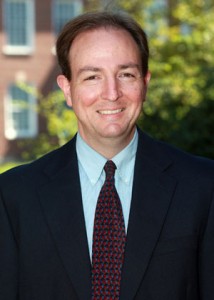 What does this have to do with Liberal Modernity? What is wrong with public culture we now have? What is the Culture of Death? Are there defects that go at the deepest foundational levels of our culture that have led to this behavior? Human dignity has to be recognized on all levels. Who was Thomas Hobbes, English philosopher and proponent of absolute government? His life and times? And what are the damaging effects of his thought on the value of the human person? What would be Bl. John Paul’s response?
What does this have to do with Liberal Modernity? What is wrong with public culture we now have? What is the Culture of Death? Are there defects that go at the deepest foundational levels of our culture that have led to this behavior? Human dignity has to be recognized on all levels. Who was Thomas Hobbes, English philosopher and proponent of absolute government? His life and times? And what are the damaging effects of his thought on the value of the human person? What would be Bl. John Paul’s response?
Podcast: Play in new window | Download (Duration: 29:46 — 68.1MB) | Embed
Subscribe: Apple Podcasts | Spotify | Amazon Music | Android | Pandora | iHeartRadio | JioSaavn | Podchaser | Gaana | Podcast Index | Email | TuneIn | Deezer | Anghami | RSS | More
The Way of Life, Carson Holloway examines the fundamental philosophers of modernity-from Hobbes to Toqueville-to suggest that John Paul II’s critique of modernity is intended not to reject, but to improve. Thus, claims Holloway, it is appropriate for liberal modernity to attend to the Pope’s thought, receiving it not as the attack of an enemy but as the criticism of a candid friend.
For other episodes in the series visit Dr. Holloway’s Discerning Hearts page
This series is based on Dr. Holloway’s book “The Way of Life”
6 Points For The Catholic Confused About “Life Issues” by Omar F. A. Gutierrez – Discerning Hearts
Podcast: Play in new window | Download (Duration: 5:40 — 5.2MB) | Embed
Subscribe: Apple Podcasts | Spotify | Amazon Music | Android | Pandora | iHeartRadio | JioSaavn | Podchaser | Gaana | Podcast Index | Email | TuneIn | Deezer | Anghami | RSS | More
From Omar F. A. Gutierrez (found on his blog)
I cannot tell you how many times I have heard this complaint from well-meaning Catholics: “We have a 40 Days for Life and a March for Life and a Novena for Life, but why don’t the bishops get behind a 40 Days for Poverty or a March to End Poverty campaign? Why can’t the bishops give equal time to all the other life issues?” Here’s what I usually say:
1) I think it is important to agree that poverty is a life issue. Likewise, it is important to agree that addressing poverty and its many causes is part of our responsibility as Catholics. So saying things like, “Helping the poor is the business of local churches and charities and is not the work of the government” is nonsense and actually counters Catholic Social Teaching. The government does and must have a role if for no other reason than to reinforce the notion that alleviating the affects of poverty is a communal responsibility. The level of governmental involvement is debatable, but that it should be involved really isn’t.
2) But then it needs to be pointed out to the well-meaning Catholic that there is no single legislative embodiment of the perpetuation of poverty. There is no one law that exists in our land which states, “poverty is a good thing,” or “we want poor people,” or “being poor is a Constitutional necessity.” There is, however, a singular decision that has enshrined abortion on demand, a singular legal decision which has created a structure around abortion that is one of the most permissive in the entire world, a singular argument that is so legally unsound that even supporters of abortion think it is bad law. That law is Roe v. Wade, and it needs to be overturned.
Saying that poverty needs to be overturned might be a nice sound bite, but it is meaningless. There is no single legal strategy that will ever eradicate poverty, indeed, Our Lord tells us that poverty will always exist. I know many who cringe at the mention of this fact, but it is a fact, and it means only what it means. We will always have the poor with us.
3) To this many respond, “Well, we’ll always have abortion too.” Yes, that’s right, which is why the strategic goal of the U.S. Bishops is not to thwart abortions for all time. Thanks to sin, abortion will always be with us. Therefore, our goal is not to undue sin but rather to overturn legalized abortion. The goal is always to finally put an end to the legal structure that allows one class of persons to snuff out the life of another class of persons. Put otherwise, our goal is to make abortion illegal not impossible. There is no way to make it impossible, and making poverty illegal is nonsensical.
4) There is another crucial difference. We have all this public pro-life work because there are still so many Americans and even many Catholics who are convinced that abortion is okay. Though there are some who callously dismiss the plight of the poor as a punishment for their own laziness, it is nevertheless the case that expressing this opinion is roundly condemned by our culture. Everyone knows, even if they dare to think it, that blaming the poor for their poverty is asinine. It’s considered “edgy” to say so when it is said. And no one runs on a platform that says, “let the poor stay poor.” Democrats accuse Republicans of just that, but they have to infer that’s the case because no one would dare say it publicly. That’s the difference.
When was the last time you saw reps for “Catholics for Poverty” on TV?
We do have Catholics, on the other hand, who think that abortion is alright. There are even Catholic University professors who teach that abortion can be a moral act. Heck, we have an entire political party dedicated not just to keeping abortion legal but to making sure it’s free for whoever wants one, along with Catholics who vote for candidates who publicly say “abortion is a Constitutional right” and “I don’t want my daughters punished with a child.”
5) Also, by defending the rights of the unborn, the bishops actually are advocating for the poor. The effort to help the poor will always fail so long as Americans continue to think that the life of the unborn child is expendable. The popes have said repeatedly, in all sorts of different ways, that a legal structure and a culture that rejects the life of the unborn innocent cannot hope to achieve a social justice that will honestly address the needs of the poor. The rights to labor, a just wage, education, health care, family and the rest are all “false and illusory,” to quote John Paul the Great, if the right to life is not defended to the maximum.
6) The truth is that the bishops’ do advocate for the poor, here and abroad. On state levels and at the national, they do advocate for those policy decisions that help the poor. Now, I don’t always agree with them on what helps the poor and what doesn’t, but they are far from silent about it. We could probably be reminded more often about our own responsibilities. No doubt there are a few prelates here or there who could take a cue from Pope Francis and give up the “trappings” of the ecclesial machine. Certainly, Catholics with means (even myself – as meager as my means are) could be more generous with our donations to fund poverty relief, especially those which address the root causes of poverty and build up family life.
But while all that may be true, abortion is singularly odious because of the laws that protect it and because of a culture that defends it. God bless all those who work for life . We need more of them, and we need more Catholics who love the poor to get behind the pro-life movement and to stop supporting candidates who perpetuate this genocide.
Omar F. A. Guiterrez, M.A. , Special Assistant to Archbishop George Lucas of the Archdiocese of Omaha. He’s also the author of “The Urging of Christ’s Love: The Saints and The Social Teaching of the Catholic”
IP#224 Dr. Robert George – Conscience and Its Enemies on Inside the Pages
“Conscience and Its Enemies: Confronting the Dogmas of Liberal Secularism” is one of the best articulations of today’s battle over religious liberty and 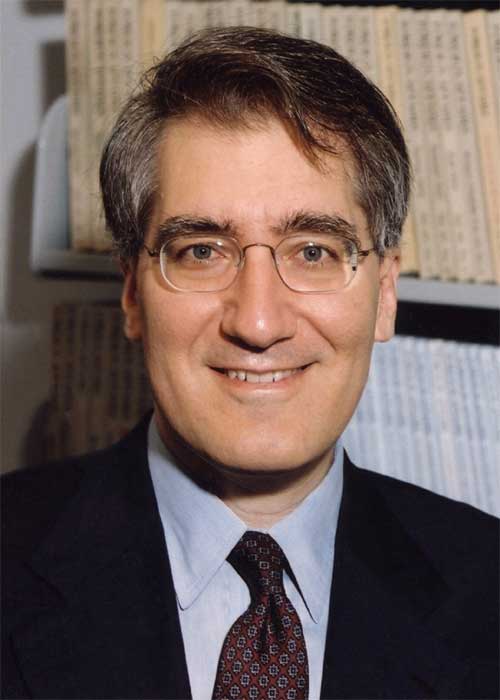 traditional morality. Dr. Robert George’s clarity and insight are indispensable for understanding where we have been, where we are going, and what paths we could be traveling down if we fail to act on the leading morality challenges facing as individuals and citizens. Pass by this book and its message at your own risk.
traditional morality. Dr. Robert George’s clarity and insight are indispensable for understanding where we have been, where we are going, and what paths we could be traveling down if we fail to act on the leading morality challenges facing as individuals and citizens. Pass by this book and its message at your own risk.
As the book description states: “In defending what James Madison called the “sacred rights of conscience”—rights for which government shows frightening contempt—George grapples with today’s most controversial issues: abortion and infanticide, same-sex marriage, genetic manipulation, euthanasia and assisted suicide, religion in politics, judicial activism, and more. His brilliantly argued essays rely not on theological claims or religious authority but on established scientific facts and a philosophical tradition that extends back to Plato and Aristotle.”
Podcast: Play in new window | Download (Duration: 27:24 — 25.1MB) | Embed
Subscribe: Apple Podcasts | Spotify | Amazon Music | Android | Pandora | iHeartRadio | JioSaavn | Podchaser | Gaana | Podcast Index | Email | TuneIn | Deezer | Anghami | RSS | More
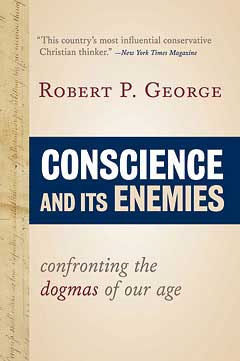 You can find it here
You can find it here
“One of the most incisive legal and moral thinkers working today.” —First Things
“One of contemporary conservatism’s intellectual pinups.” —George F. Will
“Professor George has helped strengthen our nation’s system of ordered liberty by exploring enduring questions of American constitutional law and Western political theory.” —President George W. Bush, in awarding the Presidential Citizens Medal
Dr. Janet Smith – Homosexuality and Contraception
Podcast: Play in new window | Download (Duration: 30:23 — 27.8MB) | Embed
Subscribe: Apple Podcasts | Spotify | Amazon Music | Android | Pandora | iHeartRadio | JioSaavn | Podchaser | Gaana | Podcast Index | Email | TuneIn | Deezer | Anghami | RSS | More
Bob and Mary Schindler – Teri Schiavo’s parents
Podcast: Play in new window | Download (Duration: 23:01 — 21.1MB) | Embed
Subscribe: Apple Podcasts | Spotify | Amazon Music | Android | Pandora | iHeartRadio | JioSaavn | Podchaser | Gaana | Podcast Index | Email | TuneIn | Deezer | Anghami | RSS | More
Wesley Smith – Forced Exit – Discerning Hearts
Podcast: Play in new window | Download (Duration: 27:37 — 25.3MB) | Embed
Subscribe: Apple Podcasts | Spotify | Amazon Music | Android | Pandora | iHeartRadio | JioSaavn | Podchaser | Gaana | Podcast Index | Email | TuneIn | Deezer | Anghami | RSS | More
Wesley Smith – Forced Exit
Podcast: Play in new window | Download (Duration: 27:37 — 25.3MB) | Embed
Subscribe: Apple Podcasts | Spotify | Amazon Music | Android | Pandora | iHeartRadio | JioSaavn | Podchaser | Gaana | Podcast Index | Email | TuneIn | Deezer | Anghami | RSS | More
Wesley Smith – Embroynic Stem Research
Podcast: Play in new window | Download (Duration: 41:53 — 38.3MB) | Embed
Subscribe: Apple Podcasts | Spotify | Amazon Music | Android | Pandora | iHeartRadio | JioSaavn | Podchaser | Gaana | Podcast Index | Email | TuneIn | Deezer | Anghami | RSS | More
Wesley Smith – Embroynic Stem Research – Discerning Hearts
Podcast: Play in new window | Download (Duration: 41:53 — 38.3MB) | Embed
Subscribe: Apple Podcasts | Spotify | Amazon Music | Android | Pandora | iHeartRadio | JioSaavn | Podchaser | Gaana | Podcast Index | Email | TuneIn | Deezer | Anghami | RSS | More
Steven Mosher – Population Control
Podcast: Play in new window | Download (Duration: 28:07 — 25.8MB) | Embed
Subscribe: Apple Podcasts | Spotify | Amazon Music | Android | Pandora | iHeartRadio | JioSaavn | Podchaser | Gaana | Podcast Index | Email | TuneIn | Deezer | Anghami | RSS | More
Steven Mosher – Population Control – Discerning Hearts
Podcast: Play in new window | Download (Duration: 28:07 — 25.8MB) | Embed
Subscribe: Apple Podcasts | Spotify | Amazon Music | Android | Pandora | iHeartRadio | JioSaavn | Podchaser | Gaana | Podcast Index | Email | TuneIn | Deezer | Anghami | RSS | More
Stephen Meyer – Signature in the Cell
Podcast: Play in new window | Download (Duration: 25:22 — 23.2MB) | Embed
Subscribe: Apple Podcasts | Spotify | Amazon Music | Android | Pandora | iHeartRadio | JioSaavn | Podchaser | Gaana | Podcast Index | Email | TuneIn | Deezer | Anghami | RSS | More
Stephen Meyer – Signature in the Cell – Discerning Hearts
Podcast: Play in new window | Download (Duration: 25:22 — 23.2MB) | Embed
Subscribe: Apple Podcasts | Spotify | Amazon Music | Android | Pandora | iHeartRadio | JioSaavn | Podchaser | Gaana | Podcast Index | Email | TuneIn | Deezer | Anghami | RSS | More
Michaelene Fredenburg – Abortion Changes You
Podcast: Play in new window | Download (Duration: 27:07 — 24.8MB) | Embed
Subscribe: Apple Podcasts | Spotify | Amazon Music | Android | Pandora | iHeartRadio | JioSaavn | Podchaser | Gaana | Podcast Index | Email | TuneIn | Deezer | Anghami | RSS | More
Michaelene Fredenburg – Abortion Changes You – Discerning Hearts
Podcast: Play in new window | Download (Duration: 27:07 — 24.8MB) | Embed
Subscribe: Apple Podcasts | Spotify | Amazon Music | Android | Pandora | iHeartRadio | JioSaavn | Podchaser | Gaana | Podcast Index | Email | TuneIn | Deezer | Anghami | RSS | More
Francis Beckwith Defending Life
Podcast: Play in new window | Download (Duration: 29:58 — 27.4MB) | Embed
Subscribe: Apple Podcasts | Spotify | Amazon Music | Android | Pandora | iHeartRadio | JioSaavn | Podchaser | Gaana | Podcast Index | Email | TuneIn | Deezer | Anghami | RSS | More
Francis Beckwith Defending Life – Discerning Hearts
Podcast: Play in new window | Download (Duration: 29:58 — 27.4MB) | Embed
Subscribe: Apple Podcasts | Spotify | Amazon Music | Android | Pandora | iHeartRadio | JioSaavn | Podchaser | Gaana | Podcast Index | Email | TuneIn | Deezer | Anghami | RSS | More
Erika Bachiochi The Cost of Choice
Podcast: Play in new window | Download (Duration: 27:28 — 25.1MB) | Embed
Subscribe: Apple Podcasts | Spotify | Amazon Music | Android | Pandora | iHeartRadio | JioSaavn | Podchaser | Gaana | Podcast Index | Email | TuneIn | Deezer | Anghami | RSS | More
Erika Bachiochi The Cost of Choice – Discerning Hearts
Podcast: Play in new window | Download (Duration: 27:28 — 25.1MB) | Embed
Subscribe: Apple Podcasts | Spotify | Amazon Music | Android | Pandora | iHeartRadio | JioSaavn | Podchaser | Gaana | Podcast Index | Email | TuneIn | Deezer | Anghami | RSS | More
IP#146 Mary Eberstadt – Adam and Eve After the Pill on Inside the Pages
Mary Eberstadt is one of the brightest lights we have voicing the intelligent response to the arguments brought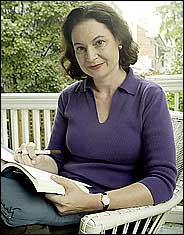 forward by women who advocate the “contraceptive” mentality, especially those which come from women who claim the Catholic mantle. Her book, “Adam and Eve after the Pill: Paradoxes of the Sexual Revolution” is outstanding! In her incredibly fluent writing style, Mary chronicles the damage done to women, men and children as a result of the “sexual revolution” and the paradoxes of our promiscuous behavior. She is wonderful to listen to as she calmly fillets, like an intellectual ninja, the viewpoint of the sexual secular left. In our conversation, she also discusses the challenges to religious liberty that we face in this country. A “don’t miss” book and discussion.
forward by women who advocate the “contraceptive” mentality, especially those which come from women who claim the Catholic mantle. Her book, “Adam and Eve after the Pill: Paradoxes of the Sexual Revolution” is outstanding! In her incredibly fluent writing style, Mary chronicles the damage done to women, men and children as a result of the “sexual revolution” and the paradoxes of our promiscuous behavior. She is wonderful to listen to as she calmly fillets, like an intellectual ninja, the viewpoint of the sexual secular left. In our conversation, she also discusses the challenges to religious liberty that we face in this country. A “don’t miss” book and discussion.
Podcast: Play in new window | Download (Duration: 27:28 — 37.7MB) | Embed
Subscribe: Apple Podcasts | Spotify | Amazon Music | Android | Pandora | iHeartRadio | JioSaavn | Podchaser | Gaana | Podcast Index | Email | TuneIn | Deezer | Anghami | RSS | More
You can find Mary’s book here
Mary Eberstadt is our premier analyst of American cultural foibles and follies, with a keen eye for oddities that illuminate just how strange the country’s moral culture has become. —George Weigel, Ethics and Public Policy Center
Be sure to check out Mary’s “Inside the Pages” interview for “The Loser Letters”

